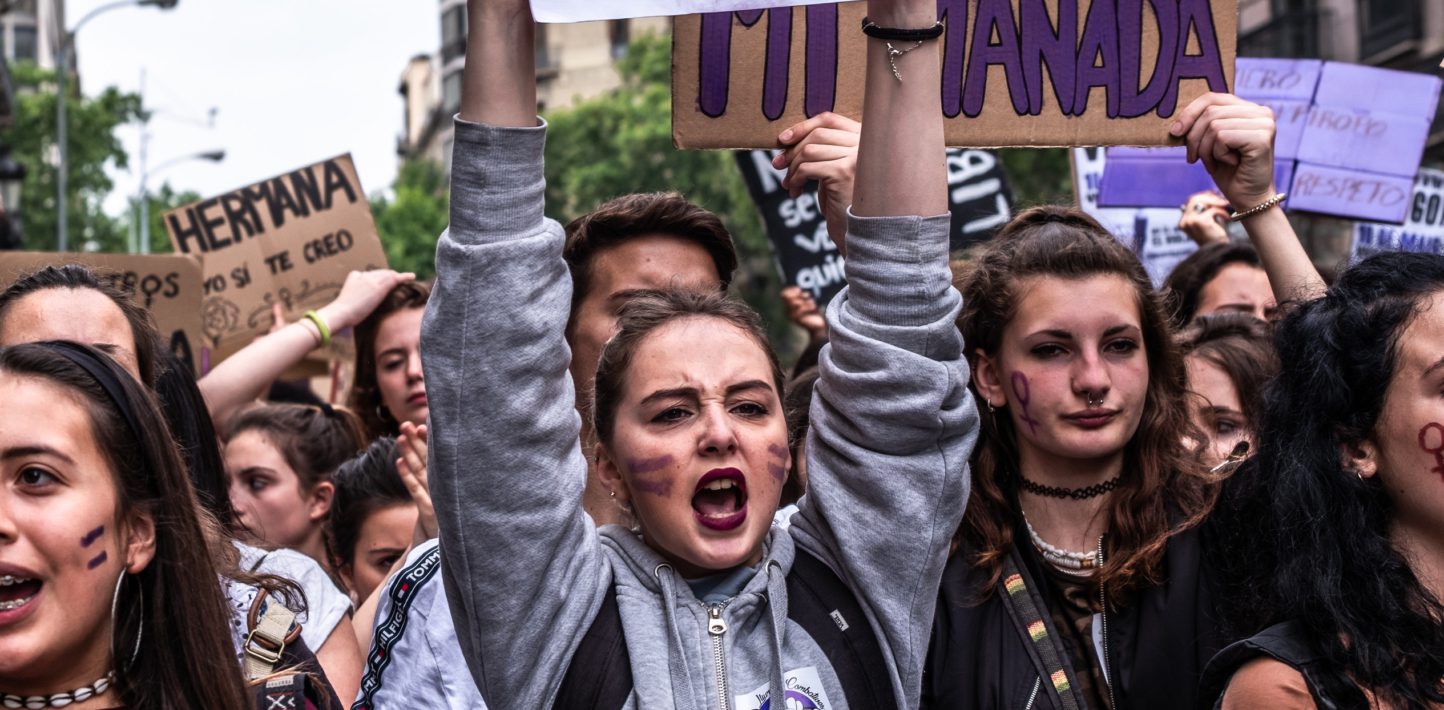On the 2nd of March, in the run up to International Women’s Day, the Human Rights Education Network of Amnesty International met in the webinar “Human Rights Education for Gender Equity”. It was a moment of discussion and analysis of objectives and results of various projects from different countries, with the aim of sharing useful practices and approaches to promote gender equity through human rights education.
One of the new initiatives presented by Amnesty Italy was the project “Stop online violence against women and girls by changing attitudes and behaviour of young people through human rights education”, a project funded by the European Commision. StandByMe is a project in partnership with Amnesty Slovenia, Amnesty Poland, Amnesty Hungary, the International Secretariat Human Rights Education Team, Bruno Kessler Foundation and the University of Trento.
The webinar was an occasion to present one of the many outputs of this project, a new Human Rights Academy course “Confronting and Countering Gender-based Violence” that will be launched in multiple languages on the 8th of March.
The course explores the root causes of gender-based violence and aims to offer the knowledge and promote attitudes necessary to challenge harmful gender norms and stereotypes, by targeting mainly young people and educators.
In addition to sharing this new StandByMe initiative, two other outstanding human rights education projects were presented during the webinar: the #VivanLasMujeres project by Amnesty Mexico and the project Strengthening Mechanisms and Resources to Combat Female Genital Mutilation (FGM) and Child Marriage in Burkina Faso, Senegal and Sierra Leone presented by Amnesty Senegal. Discussing different methodologies and practices adopted on such diverse fields of action brought out useful ideas for reflection applicable in the planning and implementing of educational projects on women’s rights.
Human rights education must involve the entire population. Political and religious leaders must also take part.
Aminata Dieye, Human Rights Education Coordinator, Amnesty International Senegal
Gender-based violence is a term that ecompasses the many facets of a form of discrimination that can surface from an online insult, as well as turning into the motive for physical and/or psychological violence. As we know, the phenomenon varies in form and scope according to the local setting and cultural norms, and this certainly increases the complexity in dealing with the topic on a global level.
Amnesty International has always taken part in the fight against this phenomenon, working as a movement in various parts of the world. One of the fundamental areas in which Amnesty International’s works to achieve this change is that of education and training on human rights, with the aim of involving young students now, and as the adults of tomorrow, and the wider population in these discussions. This means working closely with various communities offering education, training and tools to promote a change in attitudes and behaviours towards gender equity.
Although, at times, it may seem challenging to respond to this phenomenon of discriminatory violence, the role of schools and education is a fundamental starting point. The path that the global society has to walk to achieve gender equity, is a long process of deconstructing cultural schemes that we have inherited from a long history of gender oppression. Only by working with young people, to build their knowledge and skills through education, is it possible to aspire to a future where human rights are unquestionably part of individual and, above all, collective awareness.
Gender-based violence affects us all, but together we can create a safer world for everyone.
Join us in the fight against gender-based violence. Enrol in Amnesty’s new online course on confronting and countering gender-based violence and gain the knowledge and skills to make a difference.


